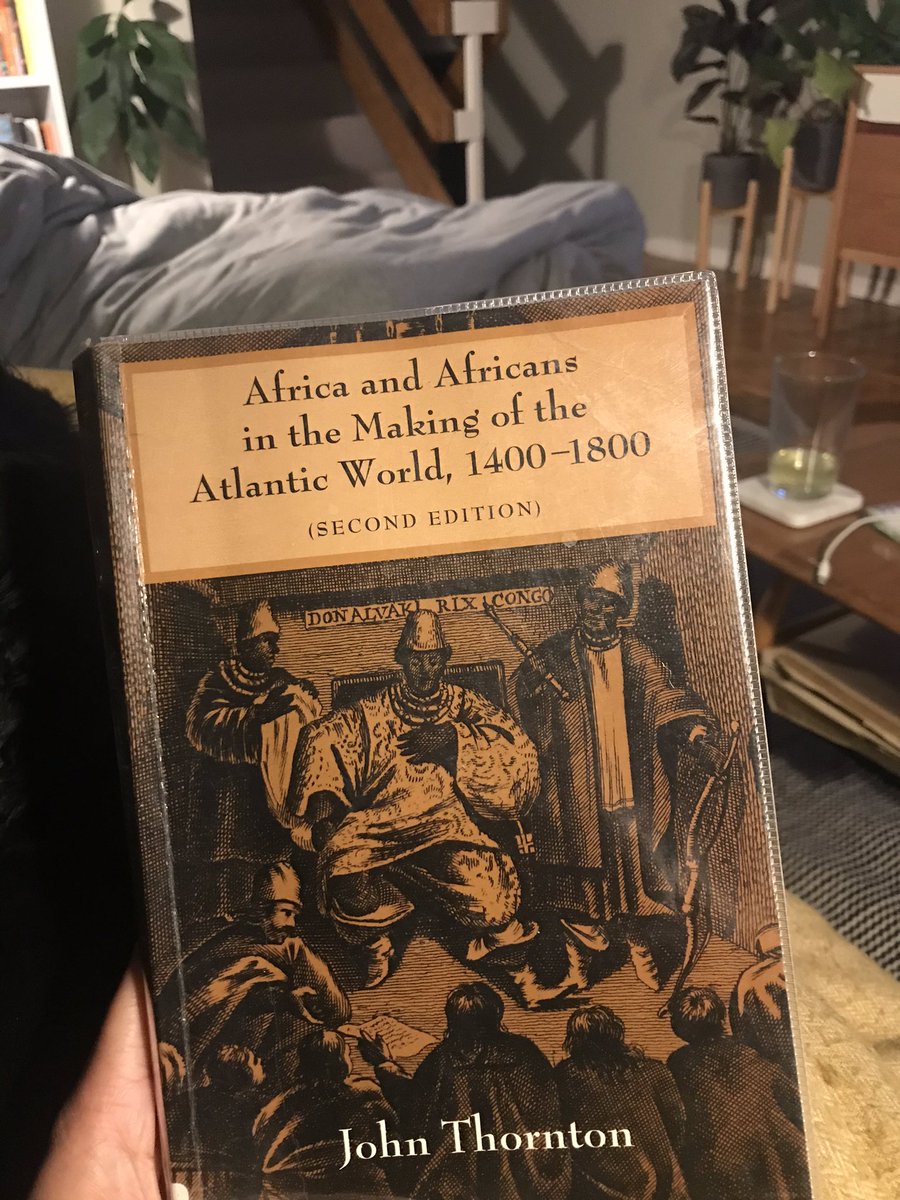Thanks so much to @mishaewen for the book recommendation. It’s so good to have things I’ve seen glimpses of referenced in other books or heard mentioned briefly in a podcast/lecture all laid with reference to the primary sources
I’ve been thinking a lot recently about the how we teach the transatlantic slave trade. Over the past few years, I’ve learnt so much and it’s made me realise how totally inadequate what I did before was. Only really focusing on people’s experiences in the Americas.
Or on the Middle Passage. Not to say that’s not important an important part of the history of course. But the extent of what I said about people before it was essentially “they resisted and many people died on the journey to the coast and they were chained together”.
Which gives the impression that these people had no meaningful life outside of their enslavement. Obviously that’s not good enough because it’s a) so accurate and b) also really plays into the myth that nothing was going on in Africa prior to the arrival of the Europeans
I kind of got this was a problem and thought having an enquiry about Mansa Musa would fix it. And I do think that enquiry has a really important role in our KS3 curriculum. But it’s necessary rather than sufficient. A couple of things I’ve read/heard recently made me realise that
Firstly doing some reading on the Kingdom of Kongo, especially this book, also by John Thornton, which blew my mind in terms of the role Catholicism played in Kongo. There’s a bit at the end where he briefly talks about how many enslaved Kongolese ended up in South Carolina.
These people were Catholic and forced into a Protestant English colony. It was such a  moment for me. Then in a @HistoryExtra podcast, Vincent Brown told the story of Apongo, later one of the leaders connected with Tacky's Revolt.
moment for me. Then in a @HistoryExtra podcast, Vincent Brown told the story of Apongo, later one of the leaders connected with Tacky's Revolt.
 moment for me. Then in a @HistoryExtra podcast, Vincent Brown told the story of Apongo, later one of the leaders connected with Tacky's Revolt.
moment for me. Then in a @HistoryExtra podcast, Vincent Brown told the story of Apongo, later one of the leaders connected with Tacky's Revolt.
Apongo had traded with a man named John Cope Sr, who had been the chief agent of Cape Coast Castle on the Gold Coast. At some point, Cope Sr. bought a plantation in Jamaica. During those years, Apongo was sold into slavery and ended up in Jamaica, where he again encountered Cope.
In Thistlewood’s diary (the one who wrote about how he had sex all the time) Thistlewood writes that Cope Sr. laid out a table for Apongo and treated him like a guest of honor on Sunday visits.

Sorry, what?
Then while listening to the audiobook of The Black Spartacus at the weekend, it mentioned that a lot of the enslaved people of Saint Domingue were Kongolese. I found this article which was super interesting and you can access for free on JSTOR.
So all this stuff is going on and people obviously took their culture, experiences and relationships across the Atlantic with them. I have not once made any of that clear in my teaching. Mostly because I had no idea.
What a terrible omission. I’m just trying to think about where best to include these stories. Perhaps expanding out the 4 lessons I made for @OakNational on ‘Who lived in British America?’ to focus on the Atlantic World, restoring Africa & Africans to their rightful place in it

 Read on Twitter
Read on Twitter



